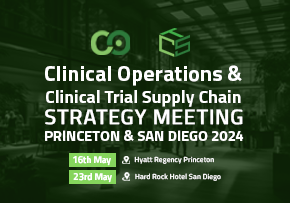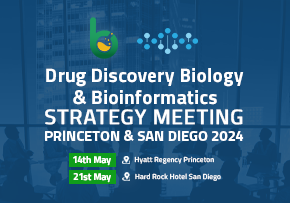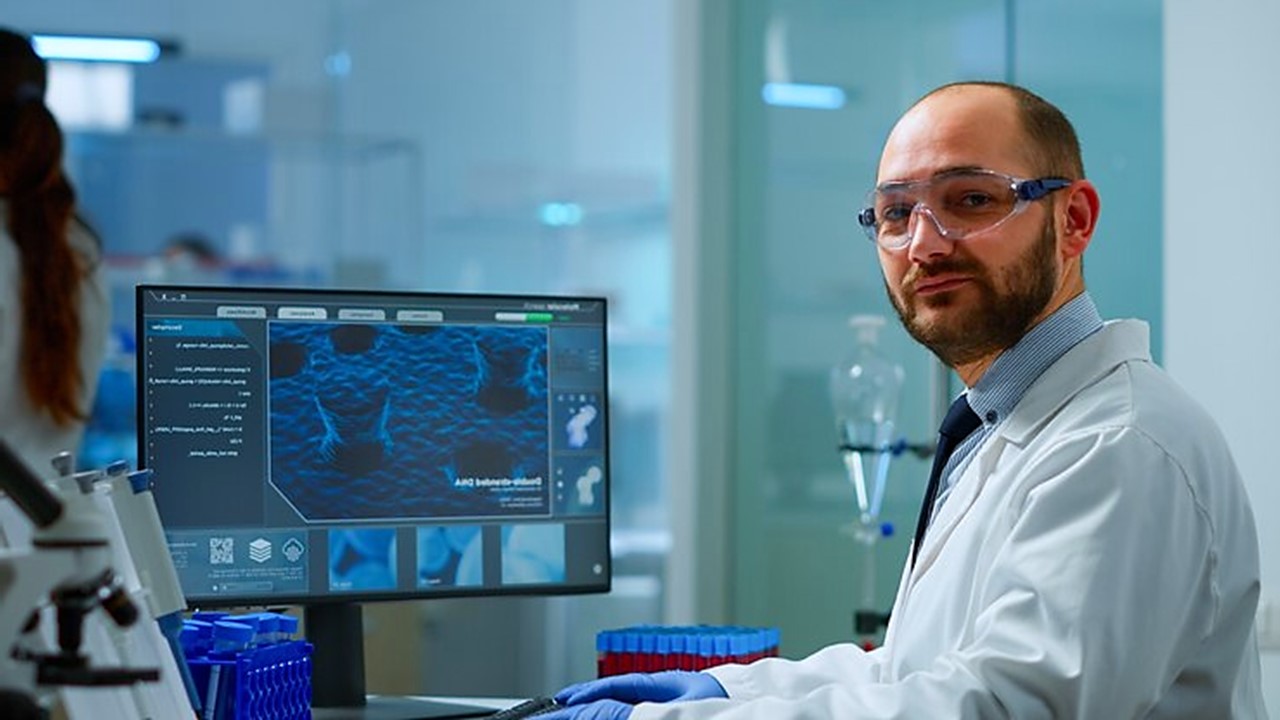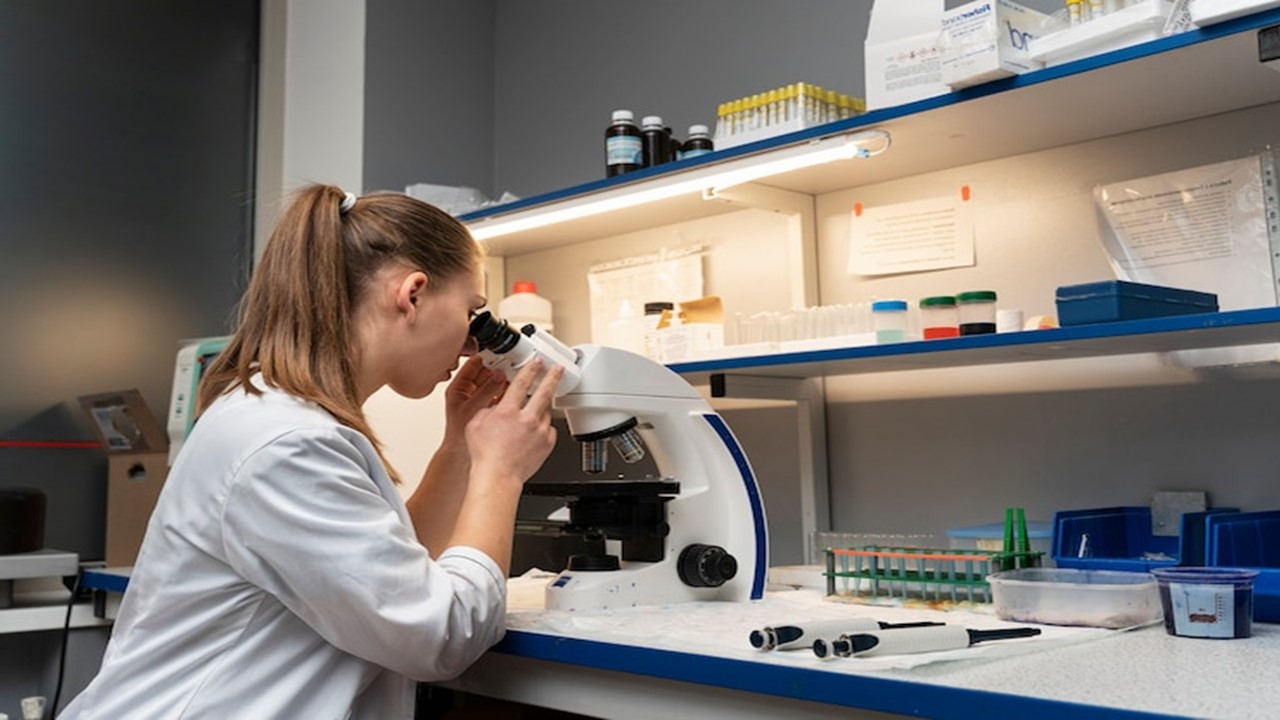About the Interviewee (Sourced from ObjectiveHealth’s Official Website)
Colleen Hoke is the Chief Executive Officer (CEO) and Co-Founder of ObjectiveHealth, a leading integrated research provider partnering with physicians and healthcare organizations to establish advanced infrastructure for research programs with the ultimate goal of innovating approaches to improve patient outcomes at the point-of-care.
Having held leadership and executive positions at clinical research organizations, specialty providers, and healthcare entities, Ms. Colleen Hoke has more than 25 years of experience in the areas of business development, organizational management, and executive team building. She was a key member of an executive team that built a successful early-phase research site that was later acquired by a major research corporation, and she has contributed to best practice standards for the Association of Clinical Pharmacology Units (ACPU). Colleen holds a bachelor’s degree in science from the University of Tennessee and is a graduate of the Wharton School of Business Executive Leadership course.
The Discussion
Democratizing Access to Clinical Research through ObjectiveHealth
[Dex Marco]: It’s such a pleasure to have you here with us today, Ms. Colleen. With almost 3 decades of proven track record in business development, organizational management, and executive team building – having held leadership and executive positions in clinical research organizations, specialty providers, and healthcare entities, what would you say drove you towards this field, and what brought you to eventually co-found ObjectiveHealth?
[Ms. Colleen]: It’s a pleasure to be here with you today, Dex, and thank you for this opportunity. To address your question about what led me into the field and how ObjectiveHealth came to be, I’ve always had a strong business acumen, having earned a degree in the field. Early in my career, I found myself in a hospital setting, working on the hospital newsletter. During this time I developed a profound appreciation for being in the company of patients and people. I believe that pursuing what you’re passionate about is the key to making a real impact, and for me, that passion lies in helping others.
In the realm of healthcare, I was particularly drawn to cancer care, which is a field of immense importance and impact. I dedicated a significant portion of my career to breast cancer research, and I felt privileged to contribute to it.
Subsequently, I ventured into early-stage research, specifically clinical pharmacology, focusing on first-in-human studies. This path occupied me for many years, honing my understanding of the intricacies of clinical research and its significance in medical advancements.
About six years ago, I was presented with an opportunity that led to the co-founding of ObjectiveHealth. Together with a distinguished gastroenterologist and clinician, we embarked on a journey to partner with physicians in the community and provide access to innovative treatments. ObjectiveHealth was born from this vision, and over the past five years, we’ve witnessed substantial growth and success.
The driving force behind my career and the birth of ObjectiveHealth has been the desire to democratize access to clinical research. Numerous disease states require new treatment options, and I find it incredibly powerful to contribute to this transformation. In essence, my motivation boils down to a deep-seated desire to make a difference in the lives of those in need.
In retrospect, I often describe myself as a “clinician wannabe” because of my affection for the field. If I could turn back time, I might have considered a clinical path. Nonetheless, I’m committed to leveraging my business background to navigate the complex world of clinical research and healthcare innovation. I believe that healthcare is evolving into a research-driven engine, where every disease is treated as a rare condition, necessitating more researchers and advanced technology.
The convergence of healthcare and research presents new opportunities, and we’re determined to explore these avenues to the fullest. Society’s need for improved healthcare solutions has never been more apparent, and we’re dedicated to using better technology and methodologies to uncover what truly works and how we can better serve the needs of patients and their unique conditions.
AI’s Predictive Power for Preventive Medicine and Potential Recruits
[Dex Marco]: ObjectiveHealth’s mission is to seamlessly integrate clinical trials into physician practices, providing patients with unprecedented access to trials and pharmaceutical sponsors with advanced research partnerships. Can you tell us more about how the use of machine learning and precision protocol matching specifically enhances the recruitment process, and what potential ethical considerations may arise when applying these technologies to patient care and pharmaceutical research at such a scale?
[Ms. Colleen]: ObjectiveHealth’s approach revolves around the seamless integration of clinical trials into the practices of physicians. We work extensively with electronic health records, effectively harmonizing data from a multitude of different EHR systems across the United States. Our team is proficient in integrating our technology into these systems, which allows us to swiftly collect the necessary data and build models that pinpoint the most suitable patients for specific clinical trials. A good illustration of the power of this approach is with ulcerative colitis and Crohn’s disease, both complex autoimmune disorders. By leveraging AI, we can predict with remarkable accuracy when a patient is on the verge of a flare-up. This predictive capability enables us to proactively engage with both patients and physicians, offering them valuable treatment options precisely when they are needed most.
Without our technology, identifying the right patients for these trials would be a daunting task. The sheer volume of patient records to sift through is beyond what any human coordinator could manage efficiently. Technology is the key to reaching the right individuals promptly, especially when they are in a critical state.
We also extend our reach to areas like non-alcoholic steatohepatitis, commonly known as fatty liver disease. This condition often goes undiagnosed due to the absence of approved medications. The challenge lies in detecting it early, as symptoms manifest late in the disease’s progression. Our technology, however, plays a pivotal role in identifying potential candidates for clinical trials. For instance, we conducted a study in a large GI practice where, within just eight weeks, our technology increased the pool of potentially eligible patients by fourfold. This expansion means more people can explore research opportunities and potentially receive treatments with broader health benefits.
Preventive measures are indeed cost-effective and preferable to late-stage interventions. And a lot of families’ connection with this issue highlights the importance of early detection and intervention. What we aim to achieve at ObjectiveHealth is vast, with 38 centers-of-excellence research programs across the United States and access to data from around 27 million individuals. We’re continuously expanding to offer more innovative solutions.
As for the ethical considerations, we’re committed to upholding patient privacy and data security, as well as ensuring that our practices adhere to the highest ethical standards. The potential for bias in machine learning algorithms is another challenge, and we’re dedicated to addressing and mitigating these concerns.
ObjectiveHealth is at the forefront of harnessing the power of AI and data integration to transform patient care and pharmaceutical research. We’re focused on improving lives and accelerating the advancement of healthcare solutions.
Dynamic Process Optimization with Machine-Learning
[Dex Marco]: ObjectiveHealth’s ObjectiveScreen technology platform is meant to optimize clinical trial performance and outcomes by prequalifying and ranking patients for specific trials. One of your key value propositions is the empowerment of research coordinators to proactively recruit eligible patients. As an excellent clinical landscape navigator yourself, how can you ensure a seamless adoption process for these tools by the coordinators, and what measurable improvements have you observed in patient recruitment and overall trial performance as a result?
[Ms. Colleen]: Our ObjectiveScreen technology platform has ushered in a new era of optimizing clinical trials by proactively identifying and ranking patients who are most suitable for specific trials. The key to ensuring a seamless adoption process for our tools by research coordinators lies in several critical factors.
First and foremost, we’ve prioritized the empowerment of research coordinators. We understand the complexity of their role in navigating the clinical landscape, and that’s why we’ve designed our technology to be intuitive, user-friendly, and backed by comprehensive training and support. We don’t just hand them a tool; we provide them with the knowledge and resources to use it effectively.
What sets ObjectiveScreen apart is our unique approach to patient ranking. We’re not merely curating a list of potential candidates; we’re refining it to pinpoint the individuals most likely to benefit from a specific trial. We identify those who are at the highest risk, whether it’s for conditions like fatty liver disease, ulcerative colitis, atopic dermatitis, or any of the other areas we operate in, including dermatology, gastroenterology, urology, and emerging oncology. But we don’t stop there. Our robust biomarker work further refines the patient selection process.
The result is that research coordinators aren’t left wondering which patients to reach out to first. Our prioritization takes the guesswork out of the equation, allowing them to connect with patients who are most ready for a new treatment option based on their current medical profile.
In terms of tangible outcomes, the impact of ObjectiveScreen on patient recruitment and overall trial performance is nothing short of impressive. Our data indicates that with ObjectiveScreen, clinical trial enrollment has seen at least a twofold increase compared to conventional methods. But here’s the remarkable part: It’s not a static process. We’re constantly refining and optimizing our approach.
Our machine-learning models play a pivotal role here. We employ similarity scoring to enhance our patient selection algorithms. This means that as patients are enrolled in the trial, our technology team continuously fine-tunes the model based on the real-world data of those who have already joined. This iterative process is akin to a feedback loop, ensuring that our machine-learning models get better with each iteration.
What this essentially means is that our measurable improvements are seamlessly integrated into the process. As we identify the need for modifications or adjustments, our team works diligently to refine the system. This approach ensures that our technology is not static, but rather a dynamic and evolving tool that adapts to the changing clinical landscape.
Our commitment to empowering research coordinators, combined with our unique patient-ranking approach and the continuous enhancement of our technology, has yielded substantial improvements in patient recruitment and overall trial performance. We believe that ObjectiveScreen is not just a technology; it’s a catalyst for progress in clinical research.
Finding the Right Formula for Accessibility, Privacy and Transparency
[Dex Marco]: ObjectiveView’s integration with electronic health records (EHR) promises to provide unprecedented transparency and real-time data for clinical trials. It goes without saying that the exponential growth of data accessibility across various levels naturally brings with it an anticipated increase in data privacy concerns. How does ObjectiveHealth plan to address these challenges while still ensuring the promised transparency and real-time analytics for clinical trial management?
[Ms. Colleen]: In addressing the crucial issue of data privacy amidst our efforts to enhance transparency and real-time analytics in trial management, we understand that with the increased accessibility of data comes heightened privacy concerns. To that end, we’ve established robust strategies and safeguards.
Primarily, our collaborations involve a comprehensive understanding of the data ecosystem. We partner with specialized practices, such as gastroenterologists, neurologists, and urologists, as well as health systems and federally qualified health centers. In the course of these partnerships, we diligently execute proper business associate agreements and other necessary protocols to protect sensitive data.
Patient privacy remains at the core of our commitment. Patients are explicitly informed about the usage and location of their data through privacy statements. This includes the purpose of data review for healthcare operations and the optimization of healthcare treatment. The transparency and communication in this regard are pivotal.
Your question also touches on the security of data within our pipelines. As an AWS entity, we adopt encryption measures both for data in transit and at rest. Additionally, we engage with several vendors to ensure that our data lakes meet the highest standards in terms of security. Data integrity and protection are non-negotiable principles in our operations.
You bring up a valid point about patients who fall outside of the conventional health system and electronic health records. This is indeed a complex challenge that the healthcare industry is grappling with. In such scenarios, where access to a patient’s records is not feasible, we are exploring emerging technologies and direct-to-patient approaches. Decentralization is an important concept in this context. It’s about reaching patients where they are, and we are committed to exploring innovative solutions in this direction.
The So-Needed Integration of Bleeding-Edge Diagnostics and Personalized Medicine
[Dex Marco]: Amid the ever-changing clinical trial dynamics, the balance between stringent inclusion and exclusion criteria and ensuring that patients who do not meet these criteria still receive appropriate care is crucial. ObjectiveHealth has outlined its commitment to supporting such patients through the ObjectiveCare platform and even in considering new trial options. How do you ensure that the stringency of inclusion and exclusion criteria does not inadvertently exclude potentially beneficial patient populations, and how will you measure the effectiveness of your system in identifying new trial options for these patients?
[Ms. Colleen]: To safeguard against inadvertently excluding potentially beneficial patient populations, we employ a multi-pronged approach that integrates cutting-edge diagnostics and personalized medicine principles. For instance, we have introduced intervention steps across various disease types, providing free access to diagnostic tools such as the FibroScan in gastroenterology. This non-invasive ultrasound-like technology assesses liver health by analyzing soundwave propagation, thereby aiding in the identification of patients who might otherwise fall short of traditional inclusion criteria. The goal is to empower investigators and healthcare providers to identify eligible candidates who might have been overlooked due to insufficient historical diagnostic data.
Furthermore, our commitment extends to dermatology, urology, and other fields, where we harness innovative techniques like photography and biomarker analysis to expand the pool of potential trial participants. By offering open access to these diagnostic tools, we aim to ensure that patients receive the thorough evaluation they deserve.
In terms of measuring the effectiveness of our system in identifying new trial options, we understand that the landscape of clinical trials is continually evolving. We are acutely aware that personalized medicine trends are leading to increasingly stringent criteria. Each disease is becoming more refined, with unique subcategories based on genomics, phenotypes, and other factors. This necessitates the adoption of sophisticated technology and data-driven decision-making. While it may make inclusion and exclusion criteria narrower, it is a testament to the progress in our understanding of diseases.
Our dedication to meeting these evolving criteria hinges on our commitment to advanced technologies, including bioinformatics and generative AI, which enable us to differentiate between the specific disease states in individual patients. We acknowledge that there may be challenges in bridging the gap between where we stand today and the full realization of personalized medicine’s potential. Nevertheless, we remain optimistic, given the rapid advancements in laboratory sciences, biomarker discovery, and other areas that contribute to the refinement of patient selection for clinical trials.
ObjectiveHealth is steadfast in its mission to adapt to the evolving clinical trial landscape, using innovative diagnostic tools and advanced technologies to ensure that no patient is inadvertently excluded while adhering to increasingly stringent criteria. Our commitment to patient-centric care and cutting-edge science drives us to continuously improve and adapt to the ever-changing healthcare landscape.
The Inevitable Convergence of Bench and Bedside
[Dex Marco]: Concerning the previous question about ObjectiveCare, what measures are in place at ObjectiveHealth to continually improve this evaluation process, and what challenges do you anticipate in implementing and refining these solutions?
[Ms. Colleen]: When it comes to enhancing the evaluation process for ObjectiveCare, our approach depends on whether we’re addressing policy-based improvements or exploring new technologies. At ObjectiveHealth, we’re deeply committed to continually engaging our partnered healthcare providers. Our perspective is rooted in a holistic view of healthcare, where research is paramount. We’re not just amplifying research activity; we’re positioning research where it’s needed most.
We recognize the need to expand research efforts beyond traditional avenues and create innovative access points. While we have a different model than Walgreens or other players, we share a common goal of pushing the boundaries of research accessibility. Our mission is to bridge the gap between research and clinical practice, reaching both healthcare providers and patients directly.
Our focus extends to various specialties, including gastroenterology, neurology, urology, dermatology and oncology, and soon cardiovascular disease and metabolism disorders. The core challenge we are addressing is empowering physicians with a new way to integrate research into patient care seamlessly. Most existing technology tools center around the research process itself, leaving the principal investigator and specialists in a separate electronic health record ecosystem.
ObjectiveCare is designed to share vital patient health data, tailored specifically for these principal investigators and other providers involved in research trials. Our goal is to provide a user-friendly and easily consumable platform for physicians to engage with research data seamlessly.
The challenges we foresee primarily revolve around ensuring connectivity with the various tools physicians already use. The last thing healthcare providers need is yet another standalone tool. It’s crucial for us to seamlessly integrate into their existing workflows, making research data easily accessible.
Additionally, we’re actively working on facilitating the bidirectional flow of data, making it as easy to input data into the electronic health record as it is to extract it. This is where ObjectiveCare is at the forefront — streamlining the process for physicians. As I see it, the overarching challenge is finding ways to bridge these disparate systems, as all of healthcare inevitably converges with research.
There is no doubt that the future of healthcare hinges on the convergence of research and clinical practice. Every ailment, even the most common ones, is “rare” in some sense, demanding an abundance of data and clinical trials. As we move toward this inevitable convergence, the challenge is in harmonizing these systems effectively. We don’t have all the answers just yet, but our dedicated team, including our CTO and tech experts, are tirelessly working to find solutions.
While I can’t provide a definitive answer today, your question itself is a vital step toward addressing the challenges we face. By articulating the challenge, we’re one step closer to finding innovative solutions.
Healthcare Leadership in the Age of Data and AI
[Dex Marco]: In the rapidly evolving landscape of healthcare research and the integration of data and AI, ObjectiveHealth has certainly demonstrated its commitment to innovation and patient-centric outcomes. Given the increasing complexity of leadership in this space, how do you envision your future role as the CEO of ObjectiveHealth, and what key qualities or skills do you believe will be most essential to drive the company’s success and maintain its position as a leading integrated clinical research provider in the age of data and artificial intelligence?
[Ms. Colleen]: Trust is foundational for us. It’s not just a buzzword; it’s a leading principle. Our goal is to be the standard in working with specialists across the country, serving as the trusted platform for collaboration with health systems. We’ve earned this trust by establishing a business model founded on complete transparency. It’s this trust that allows us to build meaningful partnerships and deliver groundbreaking research.
Another critical aspect of our vision is focus. Our approach, as exemplified by ObjectiveScreen our recruitment technology, and ObjectiveCare, is to deliver science at the point of care in a nuanced way that respects the unique healthcare needs of our partners. This is what sets us apart, and I am committed to maintaining our unique position as we move forward. We intend to offer clinical research not just as an option but as an essential component of any robust health ecosystem, enabling sustainable clinical research across various disease domains.
Our remarkable team and the talent we bring on board play a pivotal role in our success. Hiring is more than just filling roles; it’s about collaborating with individuals who share our passion and our vision for the future. We believe in collaboration, not compromise, ensuring everyone is aligned with our worldview.
I’d like to offer a simple yet profound thought: 80% of life is showing up. We are the kind of people who not only show up but also run into the proverbial burning building. As we grow, we continue to show up, push forward, and pull the wagon together. Amidst the noise, our focus remains unwavering. We are, at our core, a patient engagement company, and that’s something we hold dear.
Engr. Dex Marco Tiu Guibelondo, B.Sc. Pharm, R.Ph., B.Sc. CpE
Editor-in-Chief, PharmaFEATURES
Join Proventa International’s 10th Annual Clinical Operations Strategy Meeting at Le Meridien Boston Cambridge, Massachusetts this 9th of November 2023 to learn more about Global Site Selection and Feasibility Study (Track 5) in the realm of clinical trials. Click on the photo below to download the brochure for the event.

Subscribe
to get our
LATEST NEWS
Related Posts

Interviews
Innovating the Canadian Biotech Sector with Joseph Mancini, adMare BioInnovations
With a wealth of globally-competitive scientific discovery, Canada is primed to lead the life sciences world. adMare is here to make that a reality!

Interviews
Advancing Drug Discovery through Structural Biology with Diane Joseph-McCarthy, Boston University
In drug discovery, Dr. Joseph-McCarthy and her team at BU are emphasizing cryo-EM for high-resolution data and AI for faster processes.
Read More Articles
Synthetic Chemistry’s Potential in Deciphering Antimicrobial Peptides
The saga of antimicrobial peptides unfolds as a testament to scientific ingenuity and therapeutic resilience.












